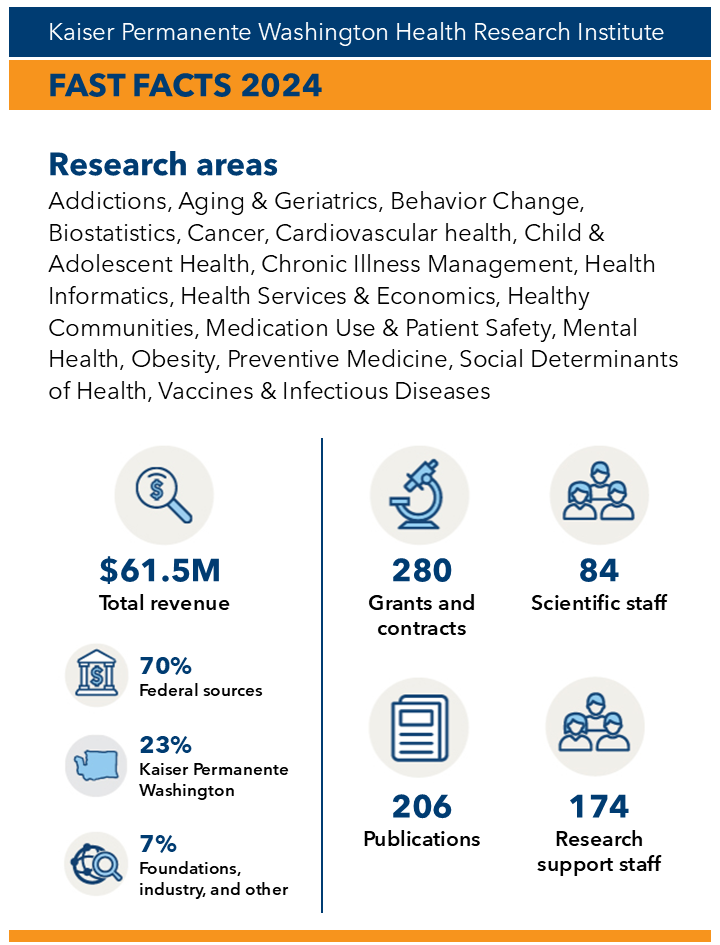Fast Facts

Kaiser Permanente Washington Health Research Institute does practical research to keep people healthy.
Kaiser Permanente Washington Health Research Institute (KPWHRI) does practical research to improve the health and health care of Kaiser Permanente members and the public. Kaiser Permanente is recognized as one of America’s leading health care providers and not-for-profit health plans.
History
Since 1983, the institute has conducted nonproprietary public-interest research on preventing, diagnosing, and treating major health problems.
Faculty and staff
KPWHRI employs about 84 health scientists — including physicians, epidemiologists, biostatisticians, psychologists, economists, and health services researchers. Most faculty members have a joint appointment at the University of Washington. KPWHRI also employs about 174 research support staff.
Funding
In 2024, KPWHRI’s external revenue was $61.5 million.
- Federal agencies (NIH, CDC, AHRQ, etc.) = 70% of KPWHRI's annual budget
- Kaiser Permanente Washington = 23%
- Grants and contracts from foundations and other sources = 7%
Networks
KPWHRI belongs to several national consortia, including the Health Care Systems Research Network, which has data from 20 health systems nationwide. Others include the Cancer Research Network, the Mental Health Research Network, and the Breast Cancer Surveillance Consortium. KPWHRI also hosts 1 of 10 federally funded Vaccine and Treatment Evaluation Units.
Our centers
The Center for Accelerating Care Transformation (ACT Center) and the Center for Community Health and Evaluation are part of KPWHRI.
Dissemination
KPWHRI shares its findings primarily through articles in peer-reviewed medical journals, presentations at scientific meetings, and the media.
Productivity
In 2024, KPWHRI managed a total of 280 active grants and contracts.


